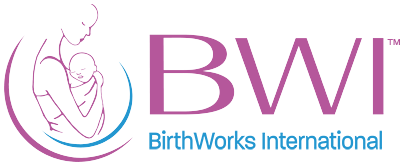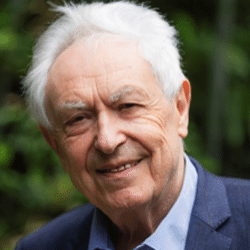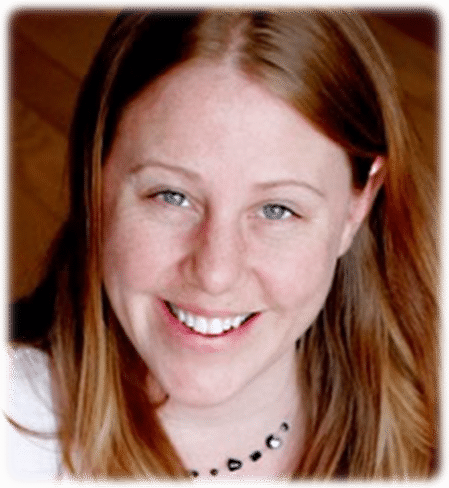Honoring the Legacy of Michel Odent
7 July 1930 to 19 August 2025
“If I have seen further than others, it is by standing upon the shoulders of giants.” -Isaac Newton
BirthWorks International is honored to have had a long and significant relationship with world-renowned doctor, surgeon, researcher, author, and champion of birth—and humanity—Michel Odent. Dr. Odent was most well-known for his pioneering work on natural childbirth. He understood complexity within the human species and over time in a way that was a true gift. His work impactfully elevated our understanding of human life—for the betterment of health and wellness in our species. He was a brilliant thinker, able to connect human experience across multiple academic fields. Through deep caring, unmatched curiosity, and critical thinking, he learned and shared so much. He is well known for a deep interest in the "primal period"—the time from conception to a baby's first birthday—and how critically it shaped an individual's ongoing physical and emotional well-being. We want to share Dr. Odent’s story, and especially the heart of his work, as it’s so impactful for healthy birth outcomes today and into the future.
Born in a French village, Michel Odent studied medicine in Paris in the 1950s, and trained as a general surgeon. Later, however, he went on to work as an obstetrician for over 20 years when he managed the surgical and maternity units at the Pithiviers hospital in France. He learned—by observing mothers—what eases the birth process and helps create healthier outcomes, and discovered that we can trust mothers—and we can trust birth. To honor the basic needs of laboring women for easier birth, he learned they needed space and time to get out of their thinking (neocortical) brain to connect to a primal, intuitive place. In the 1960s-70s, he introduced birthing pools and comfortable birthing rooms into hospitals. He was later involved in homebirth advocacy, taught at universities, and founded London’s Primal Health Research Centre.
Enthralled with the environmental factors impacting birth, Dr. Odent developed a cross-disciplinary epidemiological research study database connecting early experiences to later-life health outcomes. This Primal Health Databank, housed on BirthWorks’ website, describes a growing body of knowledge showing that a baby’s experiences during this primal period directly impact their adult health. Key highlights of his work that families and birth workers must know include:
- Babies are born with an instinctual, sensory expectation—an innate fetal agenda—to remain in close contact with their mother. They need it to regulate their physiology, including heart rate, hormones, and temperature. We must understand the deep significance of skin-to-skin in the weeks and months after birth.
- Sensory integration is needed for the mother-baby bond—it is key that a baby sees, hears, feels, tastes, and smells their mother (colostrum even has the same taste and smell as amniotic fluid!). Mothers after birth touch and massage their babies’ skin and speak in high-pitched sing-song vowel sounds. These interactions stimulate a hormone flood in both of them.
- Physical and behavioral hormonal properties help the mom want to care for the baby and develop the baby’s limbic (emotional) brain. Interactions are a language between the mother and baby that secretes hormones for both. Mother’s sense of the baby leads to primal behaviors, such as caressing and massaging, releasing the baby’s positive hormones. These develop positive brain paths early on—especially the key, earliest time out of the womb—and quality sensorial experiences cumulatively in early life form deep fetal brain pathways, as input passes through several parts of the baby’s brain at once. This equates to ideal brainwiring and integration for critical learning and development now, and for ability later too.
- What happens at the moment of birth and the moments after, through the experience of skin-to-skin contact with their mother, significantly impacts whether a baby feels its needs are met and establishes a sense of security (or not).
- Positive sensory experience is related to emotional language carried through the nervous system. It impacts a baby’s heart rate, hormones, appetite, and activity, all of which regulate metabolism and help even a young, premature baby to improve in color, temperature, and the ability to open their eyes. (Sensory experiences also form the basis for the newborn’s future speech and language development.)
- Separation deeply violates babies' innate expectations for safe, secure experiences that rely on sensory input that comes when being with their mother after birth. Dr. Nils Bergman, another strong proponent of supporting the newborn agenda, says, “Separation tolerance in mammals is measured in minutes – in humans, it is not measurable.” The cascade of events in mother-infant separation at the time of birth has deep and significant societal implications.
- Prolonged, repeated separation harms the brain—actually wiring parts of the fetal brain differently for "fight-or-flight" instead of secure attachment. Separation means "protest and despair" lays down a negative brain response that affects long-term emotional wellness, sense of trust, and social health.
- Ensuring mother-baby skin-to-skin contact after birth prevents harmful brain wiring toward “protest and despair” and subsequent “fight-flight” activation in parts of the brain that wire negative emotions into the brain.
- Breastfeeding immediately after birth stimulates all senses—so it supports positive fetal brain development. Breastfeeding is the baby’s primary innate fetal agenda—to survive and get food. If this need is met, babies feel calm and healthy.
- Attachment of mother-baby establishes “right brain” regulation—knowing normal means that, when encountering stressful change later, they can “regulate” back to a normal set point. This ability to achieve stability is foundational for good mental health.
- Experiences during the primal period matter—for life. The earliest minutes right after birth, into weeks and months, are the baby’s time to find a safe space as a foundation for growth and learning for their adult years. The quality of this time impacts later ability to withstand common ailments, like hypertension, certain cancers, and immune failures.
- Prioritizing the mother-baby dyad proactively creates health and wellness. Mothers and babies need protection in these crucial life moments. Birth workers and caregivers must understand how significant primal health is to optimal wellness. It informs a holistic approach to supporting families with evidence-based information and prioritizes practices to promote bonding, like skin-to-skin contact and breastfeeding—both of which matter for life.
- Parents deserve to know that nothing can be more important to the health of our society as a whole than supporting the primal period. If pregnant women knew the importance of suckling and breastfeeding for brain wiring and maturity, more would choose to breastfeed their babies. Holding, touching, and wearing the baby near the heart matters.
If you are intrigued, and would like to learn more, Dr. Odent authored multiple articles and many books, reaching a global audience. Key areas he discussed were the importance of breastfeeding in the hour after birth, using birthing pools, reducing the pain perception by meeting mothers’ needs in labor, human adaptation and nervous system set points, the importance of lowering neocortical activity in labor to support the “fetus ejection reflex”, and even the evolution of our species due to limited modern childbirth practices. Dr. Odent’s books (published in 22 languages) include:
- Birth Reborn (1984)
- Primal Health: Understanding the Critical Period Between Conception and the First Birthday (1986)
- Water, Birth and Sexuality: Our Primeval Connection to Water and its use in Labour and Therapy (1990)
- The Farmer and the Obstetrician (2002)
- The Caesarean (2004)
- The Functions of the Orgasms: The Highways to Transcendence (2008)
- Childbirth in the Age of Plastics (2011)
- Childbirth and the Future of Homo Sapiens (2013), reissued as Childbirth and the Evolution of Homo Sapiens (2014)
- The Scientification of Love (2014)
- Do We Need Midwives? (2015)
- The Birth of Homo, the Marine Chimpanzee: When the tool becomes the master (2017)
- The Future of Homo (2019)
- Planet Ocean: Our Mysterious Connection to Water (2021)
- Can Humanity Survive Socialised Birth? (2023)
His most recent work focused on the possible evolution of Homo sapiens in relation to the modern ways of being born and on what he termed "womb ecology”—which he called “the most vital branch of human ecology”. This is, in his words, “...the life period with the highest adaptability and vulnerability to environmental factors—the period inside the womb, including the birth process.”
We are so grateful for Dr. Michel Odent! He worked closely with BirthWorks for decades as an active member of our Board of Advisors. He was a speaker at all of our conferences. He invited our Founder, Cathy Daub, to speak at his conferences, including The Mid-Atlantic Conference on Birth and Primal Health Research in 2010 and The Mid-Pacific Conference on Birth and Primal Health Research in 2012. He co-sponsored our conferences such as Primal Health: Global Lessons from the Womb Conference in 2009 and Peace in Birth Conference in 2019. His interdisciplinary research impacts all our offerings and we ensure that everyone who trains with BirthWorks understands his work deeply.
Michel passed away in August 2025. He will be dearly honored by our community—and his brilliance and loving heart will be greatly missed. Read more about his life at Michel Odent - A Living Legacy.



